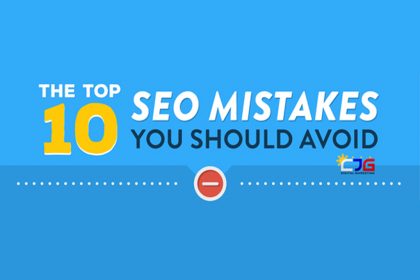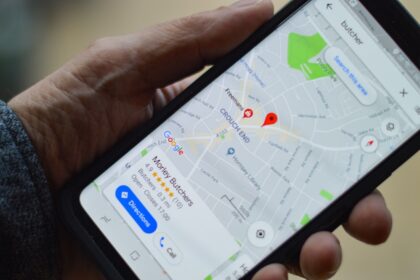Six BIG things most people get wrong about SEO
SEO is an evolving marketing practice that requires adaptation. Discover the six things most people get wrong about SEO and what you can do to avoid them.
Search engine optimization (SEO) has gone from an occasional practice to a reliable source of revenue for businesses. With technology innovations and changing consumer behavior, the work of search optimization has turned into a critical part of business strategies.
But because this marketing practice evolves, some techniques have become obsolete. And their application to this day can be a mistake for your SEO efforts, affecting not just your search ranking but your profits as well.
The six things people still get wrong about SEO
Here are six big things that many people still get wrong about SEO.
1) They believe keywords and links are all that matter
Keywords play a key role in SEO and links can be important search engine ranking factors. But keyword research and link building strategies have changed over the years because search engines have become smarter. Most are using machine learning technology, a form of artificial intelligence, to deliver the most appropriate search results for users looking up products, services and other information.
Even some of the best SEO tools use AI, offering insight into keywords and content optimization.
Search algorithms are no longer just “reading” keywords and website context. They are also determining intent, which means better matching what users are looking for to the right websites. So the old practice of stuffing your website pages with keywords isn’t going to work anymore. The same goes for adding irrelevant links to your website. Both may even pull down your ranking in search results, making you lose opportunities to capture traffic.
Good link building and ranking keywords mean creating valuable and relevant content for users using a trusted link building service from a company like the Getmentioned agency. They have mastered the art of placing and managing links that allow you to increase your rankings in Google. Natural and informative links and keywords in your blog posts or website copy help to boost your search relevance.
2) They think it’s a gimmick
SEO practices fall into two categories: white hat and black hat. White hat tactics improve a website’s ranking using techniques that work within the search engine’s terms. These terms include creating websites for users, not for engines and to making it unique and valuable for people. Black hat tactics, on the other hand, use sketchy techniques that violate search engine guidelines to boost ranking. These tactics can include loading irrelevant keywords on pages and doing pages with little to no value.
It’s the sketchy tactics that may make some people think SEO is merely a gimmick. Used the right way, however, SEO isn’t a scheme but an effective way to get people to learn about your business through the web.
3) Ranking is their only goal
An upward movement will not matter if your website visitors do not convert into leads and buyers.
SEO isn’t just about the rankings; other metrics also determine your success. For instance, if you want to know how effective your strategy is for ranking a certain term related to your business (e.g., financial planning advisor,corporate catering services or social media manager), focus on factors that deliver organic search traffic growth: which pages did people engage with, what keywords brought more visitors and which pages need improvement.
Other factors to look at for your SEO efforts are tracking conversions and knowing which keywords were most efficient in delivering results.
4) They assume that SEO is expensive
Traditional advertising can be affordable for some businesses. If you choose direct mail, for example, you may only spend $15 to $20 per envelope and about $40 for a newspaper insert. In comparison, SEO could cost several thousand dollars per year. So some entrepreneurs tend to view the marketing practice as expensive.
But keep in mind that direct mail (and most traditional advertising) tends to have a low response rate and are usually not targeted. SEO can provide your business with better ROI because your approaches will be targeted; people looking for your products or services start as website visitors but eventually convert to customers with the right strategies.
Once your SEO efforts lead to more visitors and your website ranks well, your marketing costs are likely to go down.
SEO is not expensive, but this doesn’t mean you should scrimp on your budget. To achieve ROI, you’ll want to work with a professional agency that has shown results for other clients or you could learn more about SEO to practice it successfully on your own.
Although traditional advertising isn’t as dominant today, don’t count it out just yet. Some people still prefer to get something in the mail, like postcards and catalogs. The key is to have a good mix of the old and new marketing methods for your business.
5) They worry that Google Penalties will end their marketing campaigns
Google’s penalties are a bad outcome, but they are not going to end your campaigns. Temporary ranking drops tend to happen, especially when the search engine rolls out algorithm changes. But they aren’t always severe, and you do have the opportunity to correct the issues that penalized your site.
6) They think it’s too complex… or too easy
To someone new to SEO, terms like canonical tags and robots.txt file can come off as intimidating. Although SEO does require some technical aspect for it to deliver results, you don’t have to be a coder or be knowledgeable about website architecture to do optimization work.
Basic SEO is easy to learn. You can take an online course that will teach you about keywords, link building and content development within a few hours.
But SEO isn’t too easy either. Some concepts will require experience and time to learn, like data analytics and competitor analysis to inform your SEO strategies.
Another key thing to remember why SEO isn’t too easy is the updates. Because it continues to evolve, you always need to keep with changes to ensure your strategies are effective.
How to improve results from SEO
Effective SEO calls for marketers and businesses to create brand experiences using the search results to establish relevance. As search engines increasingly focus on user experience, so should your website.
Here are some ways you can improve your SEO:
- Try news and social content. You can improve your content’s visibility through social content and Google News. You’ll need to gain a good understanding of your space and how Google responds to a query to rank on these platforms.
- Use “People Also Ask”. People also ask for… features content directly pulled with the search results. These are questions people use to search for information about products, services or ideas. Use this search feature to discover content optimization opportunities that target your audience.
- Apply SEO on various platforms. You don’t have to just optimize for search results because people use different platforms to search, like:
- YouTube video and channel optimization
- Social media optimization
- Vertical search engines and third-party sites
- App store optimization
You can also watch the Talented Ladies Club SEO Masterclass to get a simple, five-step SEO strategy you can start using today to confidently improve the SEO of your own website, and help your site to rank higher in search engine results.
An evolving practice as SEO requires adaptation and fluid strategies. No matter what business you run: a startup, a home-based service or an established company, make sure your optimization work follows current best practices. Do it consistently, and you’ll soon see lucrative results.
Itamar Gero is the founder of SEOReseller.com, a digital marketing solutions provider that empowers agencies and their local clients all over the world. When he isn’t working, he’s traveling the world, meditating, or dreaming (in code).
Photo by Myriam Jessier










